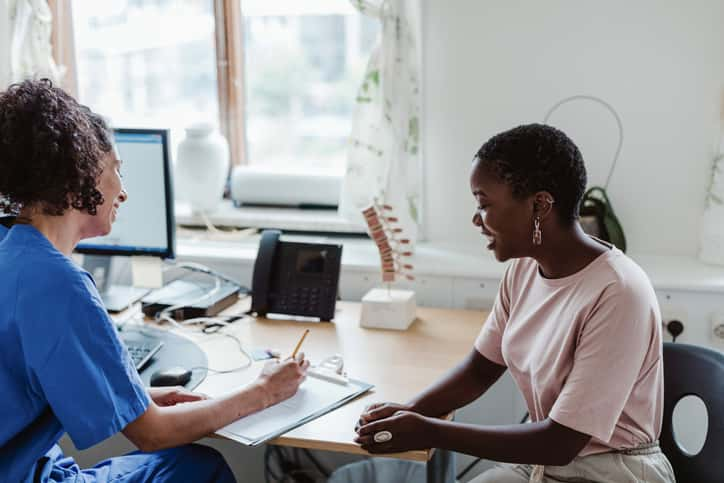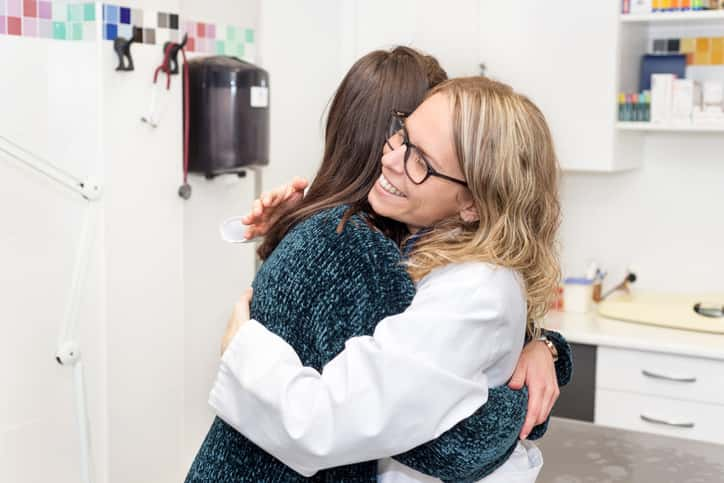Violence Against Women: How healthcare providers can make a difference by helping survivors cope with trauma

Violence against women is a global issue and one that has been ongoing for centuries. In the 21st century, there is more awareness, yet, every year 66,000 women are violently killed globally, accounting for approximately 17% of all victims of intentional homicides. MEA Worldwide's (MEAWW) Violence Against Women campaign will examine different aspects of the issue and society's role in addressing it.
Violence against women is a major health concern and a violation of human rights. It is perpetrated in many ways including intimate partner violence, sexual violence, child sexual abuse, women trafficking, and female genital mutilation. According to the World Health Organization (WHO), women experience violence in different stages of their lives, including violence by an intimate partner and family members, sexual violence by non-partners, trafficking (sexual and economic exploitation), femicide for myriad reasons, sexual harassment in a public place (including online) and acid throwing.
Studies show that one in three women in the US is a victim of rape, physical violence, or stalking by an intimate partner in their lifetime. Women experience 4.8 million incidents of physical or sexual assault annually, per the American College of Obstetricians and Gynecologists. In most cases, the batterer or perpetrator of the violence is someone the woman is familiar with. Women and girls of all ages are subject to violence and it is commonly associated with significant physical, mental, and emotional health impacts. In addition, it not only directly impacts the women undergoing the brutality but it also negatively affects their children who bear witness to it. Yet, the true extent of intimate partner violence is unknown because many victims are afraid to disclose their personal experiences of violence.

Women who have experienced violence are often reluctant to reveal their predicament to health, social care practitioners of police because it tends to create a sense of shame, embarrassment, powerlessness, and hopelessness in them. Violence against women gives rise to various health implications ranging from minor physical damage to drastic effects that can be fatal. Psychological ramifications are also a result of violence against women and include post-traumatic stress disorder, depression, substance abuse and suicidal tendencies. Violence survivors have also endured severe consequences with regard to their reproductive health. Intimate partner violence contributes to gynecological disorders, pregnancy complications, unintended pregnancy, and sexually transmitted diseases.
The health sector is supposed to be a foot in the door for women who are survivors of violence to seek treatment. It holds an important position, specifically in intervening in violence against women cases because survivors with physical injuries are more likely to access healthcare services. Here, the health sector assumes different roles, from prevention to responding to the cases of violence against women in patients that approach them. A significant task is to identify women who are experiencing abuse and halting the cycle of violence. Health care providers often constitute the first professionals to offer care to women who are victims of violence.

They advocate for a public health perspective, identify and provide a cohesive intervention as well as develop, enact, monitor, and evaluate violence against women programs in health sectors. Additionally, they should also be adept at administering empathetic and supportive care to those who may be experiencing abuse and enable them to seek help. The provision of healthcare requires a special set of skills and knowledge. Medical professionals and nurses are expected to be non-judgemental, empathetic, active listeners with an acknowledgment for their own values and beliefs related to violence against women, prejudices, and social stigma.
Obstetricians-gynecologists are in a unique position to render support for women in need because of the nature of their patient-physician relationship. Opportunities for intervention also arise during the course of pregnancy, family planning, annual examination, and other women's health consultations. The US Department of Health and Human Services has endorsed the Institute of Medicine's recommendation that IPV screening and counseling should be central to women's preventive health visits. The screening process in all patients is important because some women do not disclose abuse the first time they are asked. Screenings should be done in private and health care providers should avoid using stigmatizing terms like 'abuse', 'rape', 'battered', or 'violence'. Instead, they should use culturally relevant language.

But the health sector cannot operate by itself in eradicating violence against women and need a strategic direction. In its global plan to address interpersonal violence, WHO laid out four strategic directions: strengthening health system leadership and governance, strengthening health services delivery and health workers/providers’ capacity to respond, strengthening the prevention program, and improving information and evidence. Those in leadership positions in the medical field can play their part by contributing to the drafting and effective enforcement of appropriate policies, guidelines, and legislation.
Violence against women is a complicated and multifactorial issue that needs a multisectoral and ecological approach to tackle it. Even if violence and abuse are not acknowledged, discussing them with caution for sensitivity and care, as well as administering readily accessible educational material, would be of great help. This could prove very useful in normalizing the topic for patients with difficulty to start a conversation about violence against women. The United Nations Population Fund and other UN agencies released a set of guidelines in 2015 that highlight six key services that essential healthcare providers can render, namely: identification of survivors of intimate partner violence, first-line support, care of injuries and urgent medical treatment, sexual assault examination and care, mental health and assessment and care, and documentation. These services will be provided by any trained health provider who has knowledge and expertise in violence against women issues.

In recent years the issue of violence against women has been recognized and criminalized with appropriate laws governing the misdeed. Meanwhile, many efforts have been made towards increasing awareness of the general public as well as healthcare professionals about the issue in an attempt to prepare practitioners to identify and respond appropriately to those in need. But, there is still more to be done.
If anything you read here makes you want to talk to someone, call 1-800-799-SAFE (7233). Individuals who are Deaf or hard of hearing may use TTY 1-800-787-3224. Additionally, advocates who are Deaf are available 24/7 through the National Deaf Hotline by video phone at 1-855-812-1001, Instant Messenger (DeafHotline), or email (nationaldeafhotline@adwas.org). If it's not safe for you to call, you can use a live chat service here.










